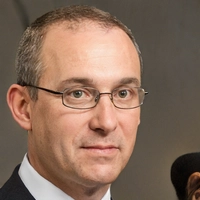What is the teacher education program?

An Introduction to The Teacher Education Program
Do you remember that inspiring teacher from your student days who was more of an influencer, who not only imparted knowledge, but also influenced the way you think, act, and see the world? Well, folks, there's a way to be that incredible person! Interested? Then you've come to the right place because today, we're talking all about the teacher education program.
Basically, the teacher education program is where regular humans are transformed (not quite like a superhero – but pretty close) into knowledgeable, inspiring, and influential teachers. These programs equip prospective teachers with the skills, knowledge, strategies, and everything else under the pedagogical sun to foster learning in the future leaders of the world.
The Core Components of the Program
The Teacher Education Program is like a large pie, filled with an assortment of ingredients. Some of these core components are the study of specific teaching methods (teaching methodology), understanding the psychology of learning, gaining subject-specific knowledge, plus experiencing practical teaching training in a real-world classroom setting (practicum).
I particularly remember a story from my teacher education program where I had to spend a whole semester working at a local school as part of my practicum. There was this one student, let's call him Johnny, who found mathematics as appealing as a plate of Brussels sprouts. Well, by the end of the semester, Johnny asked for more math problems as eagerly as he would ask for a bag of candy
Entry Demand and Requirements
Okay, so now you're probably thinking, "How do I get into one of these programs?" Good question! The entry requirements may vary from institution to institution, but there are some general ones. Usually, a bachelor's degree in any discipline is needed, along with a decent GPA, and a bucketful of motivation.
Moreover, some institutions might require you to sit an entrance exam or go through an interview process. Remember, they are looking for people who have a genuine interest in shaping young minds, not someone who wants the summer vacations off (although that is a pretty nice perk!)
A Peek into Teaching Methodologies
Teaching methodologies are like the secret spices in a recipe. They can turn a bland lesson into an engaging and tasty educational feast. Many programs delve deep into various teaching strategies, making future teachers adept at turning any classroom into a fertile learning ground.
During my training, I remember we had a whole unit dedicated to exploring various teaching styles and strategies. Flip, blended, project-based, inquiry-based learning, direct instruction – you name it, we explored it. And let me tell you, it was as exciting as exploring different flavors at an ice-cream parlour.
Understanding the Psychology of Learning
The psychology of learning is another critical slice of the teacher education pie. Ever wondered why some students grasp a concept quickly while others take longer? Or why some students respond better to visuals while others to audios? Well, that's where the psychology of learning comes into play
Here, future teachers are equipped with the understanding of how learning occurs in diverse individuals and how to address these differences. This knowledge is like a map that guides teachers in navigating the diverse learning needs in a classroom.
The Importance of Subject Specific Knowledge
Before you teach something, you have to know it, right? A teacher education program ensures this by covering subject-specific knowledge. Whether it is Pythagoras theorem, the rules of grammar, or the different layers of earth's atmosphere, these programs make sure future teachers have a stronghold on the subjects they would be teaching.
And here’s a fun fact: subject-specific knowledge is one of the key factors affecting student's achievements. So, as future teachers, not only do you need to know your stuff, you have to love it too. It’s like, if you're not excited about the parts of a cell, how can you expect the students to be?
Practicum: The Taste of the Real World
Sure, reading about teaching strategies and learning theories is excellent, but remember, practice makes perfect. Nothing beats real-world classroom experience, interacting with students, planning lessons and assessments, managing classrooms – the works. For future teachers, the practicum is where the rubber meets the road.
In one of my practicums, I had to design a full science unit on electricity for fourth graders. The planning, execution, assessments, classroom management – it was overwhelming, but enlightening. Seeing sparks in the students' eyes (the literal ones caused by static electricity, and figurative ones of understanding) just made the months of hard work all worth it.
Final Thoughts: The Outcome
After being baked in the heat of pedagogical theories, strategies, and practicums, what comes out are well-rounded teachers who are ready to shape the future leaders of the world. A teacher educated through such a program is not only knowledgeable about teaching strategies and psychology but also knows how to apply these strategies in a real-world classroom.
One last tip: Keep your motivation, creativity, and love for learning at all times high. Remember, as a teacher, you are not just teaching a subject, but you are shaping lives and the future. Now that's something, isn't it?

Write a comment